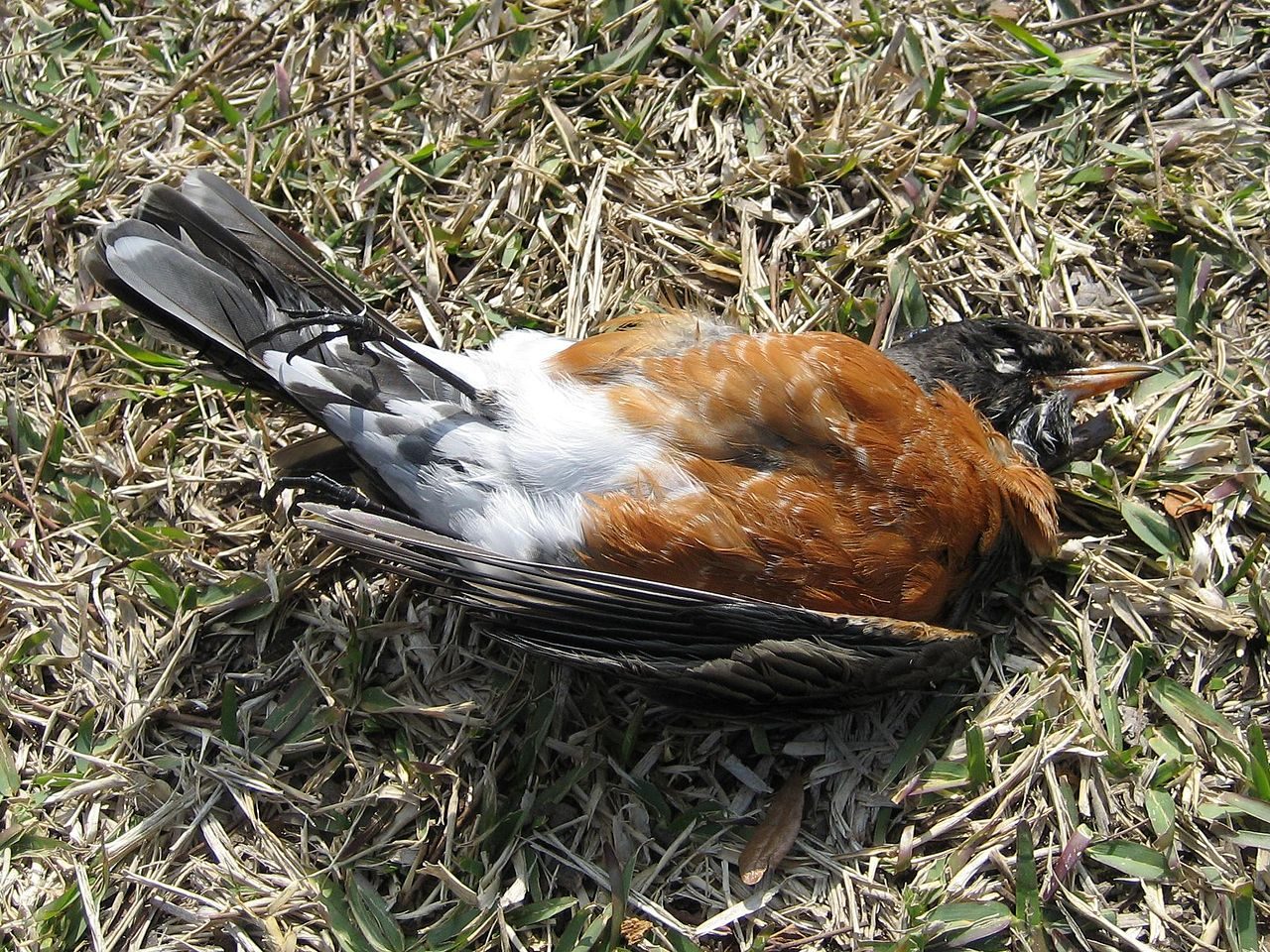The first time I saw Rex kill was on an early spring day in 2018. The yard was a mess of snow and mud, ice and road sand. We were near the end of my driveway when suddenly Rex, a yellow Carolina dog with pointy ears, pounced. My arm jerked and I shouted. It took no more than a second, and there was a mouse, dead. He killed it with one snap of his jaws. Below the fur, I could see the mouse’s viscera, and what I thought might have been its bright heart. Rex did not try to eat it. He did not try to claim his prize. He wagged his tail and tugged at his leash, urging me onwards. He wanted to go for a walk, and so we went, leaving the little corpse behind.
He killed many more mice that summer. He caught a graysquirrel and snapped its neck. He hunted down a mouse that had been living inthe basement and tidily disemboweled it. I had to stop Deja, my other dog who,unlike Rex, does have a taste for raw meat, from eating the spoils. The worst kill happened during the summer. Every year, a pair of robins settles down in the nest above our porch light. The twiggy sprawl has been there for years—since before we moved in. I do not know if it houses different robins every year or if the same ones keep coming back. It doesn’t matter. Every spring, they leave the area around our front door speckled with white streaks of birdshit, but also eggshells and songs and, for us, the joy of seeing fledglings bumble and bounce out of the nest and onto the front lawn where they finally begin to fly.
But this year, one poor nestling leapt and stretched its wings, falling onto the rough wood steps. I had just opened the door, and Rex bounded out. Before I could stop him, he had grabbed the head in his teeth and bit down.
I picked up the body of the bird, still warm and soft. I stroked its breast and I saw where Rex’s sharp tooth pierced its tiny eye. Crying a little, I buried it beneath the butterfly bush. I placed a rock on top of the grave, and later, in the rusty days of October, I planted a daffodil bulb on top of its body. I hope it will grow this spring.
2018 was a year of small deaths and near misses. There was the deer I clipped with my car while driving in Canada, and the chickadee that flew into our kitchen window and perished on the stones below (now buried next to the robin, under the butterfly bush). A sick porcupine crawled under our porch to die. Before it expired, it spent several days hissing and spitting at our dogs, screaming occasionally into the night. Every morning this winter, Deja would run away and stay, circling the woods, while I called to her to come back inside. I didn’t know what was causing her sudden disobedience—I assumed she was just senile, old and cantankerous, living wild because it’s how she always wanted to live. But one day, in early December, I ventured out in the snow to find her and stumbled across a spine, sticking out of the snow, ribs stretching towards the pines like fingers, white and coral red. There were bits of flesh still attached to the bones, chunks of rotten meat, and gray hanks of fur peaked out of the surrounding snow bank. Suddenly, Deja’s vomiting and bad breath made a terrible sense. I knew what she’d been visiting, all those times: a coyote carcass.
I’m not easily disgusted, but that dead creature turned my stomach. I threw up into the snow. I blamed it on morning sickness, and perhaps that was it. But perhaps it was also the sadness. I love to listen to coyotes sing at night, howling from the woods, their voices lacking harmony but filled with desire. My husband buried it by the oak tree.
These animal deaths, small and brutal, only hold realsignificance for me when viewed together. Some days, I feel strange pride aboutbeing a person who lives in the woods, who sees nature red in tooth and clawand loves it anyway. But some days, I feel unlucky. Not cursed, exactly, but somethingclose. Plagued by little deaths, small tragedies that are painful to witnessbecause they mean nothing. Living things die. I kill plants and bugs and my dogkills rodents and birds. I buy meat, and before I was pregnant, I liked to eatit raw. I revel in the texture of steak tartare, dressed with capers and toppedwith a quail egg; I salivate at the thought of venison Carpaccio, bright withlemon juice and scattered with capers. It’s hypocritical, how much small deathscan upset me, how a flightless robin can make me cry.
Lately, my mind has been plagued with a nagging fear, a low-level anxiety that rises like a fever before bed and in the morning. I wonder if I will experience another small death, another loss of life. I have never considered a fetus a person, and yet I don’t want mine to die. It has no personality, no memories, no thoughts and fears, no emotions or love. Yet it’s mine. My uterus has stretched larger than a grapefruit, and inside it lives a small life, urinating, kicking, growing teeth and claws of its own.
2018 was a year of deaths and endings. My car died; my relationship with a friend soured. Our lawn is now dotted with animal graves.
As December turns into January, my stomach will continue to swell. If all goes well, a fetus will become an infant, who will become a person. If all goes well, the daffodils we planted this fall will bloom, yellow and white and spring green.





